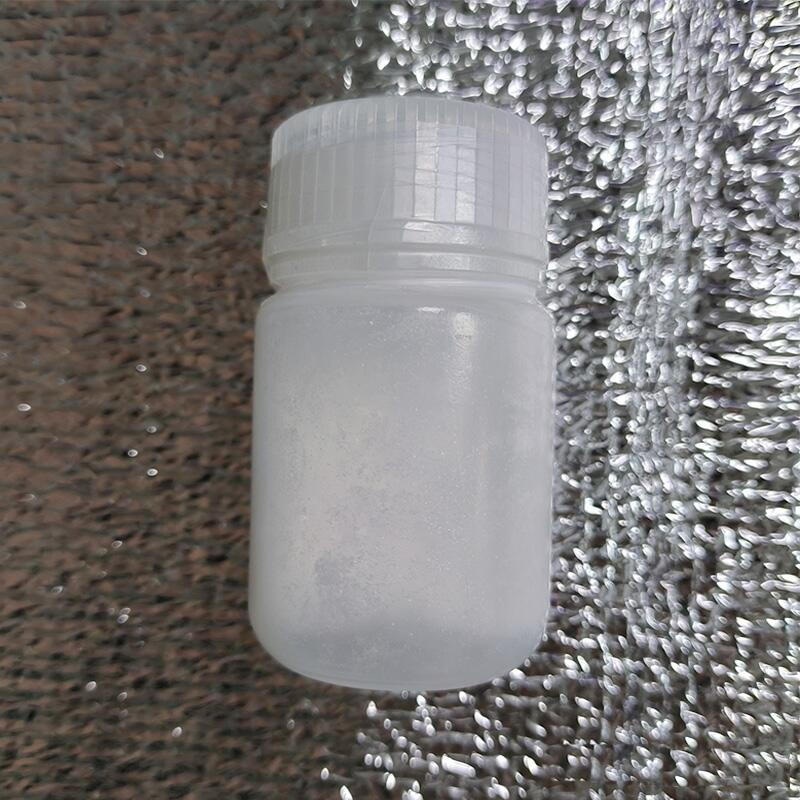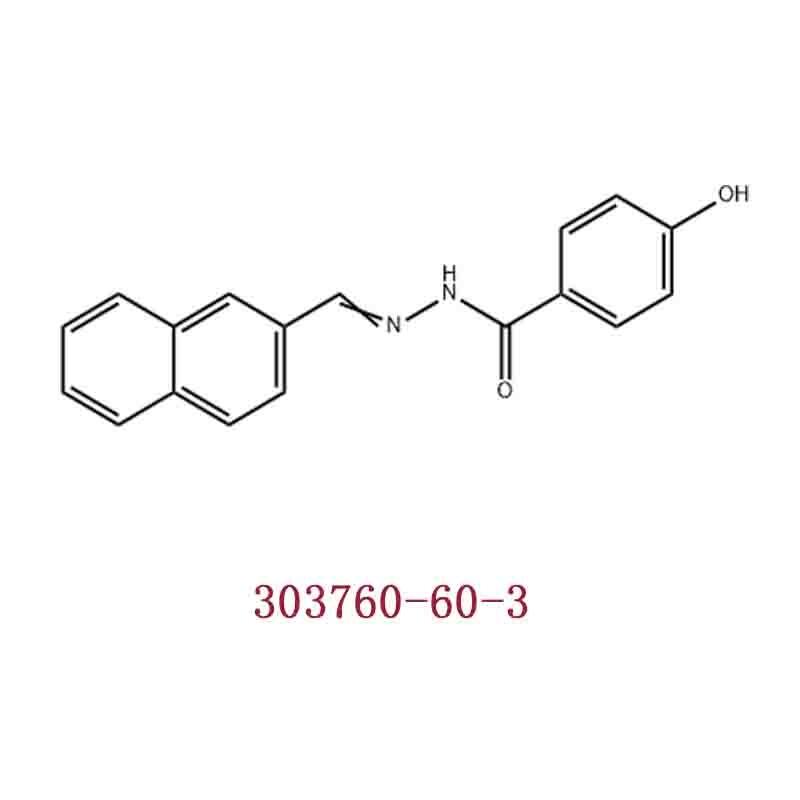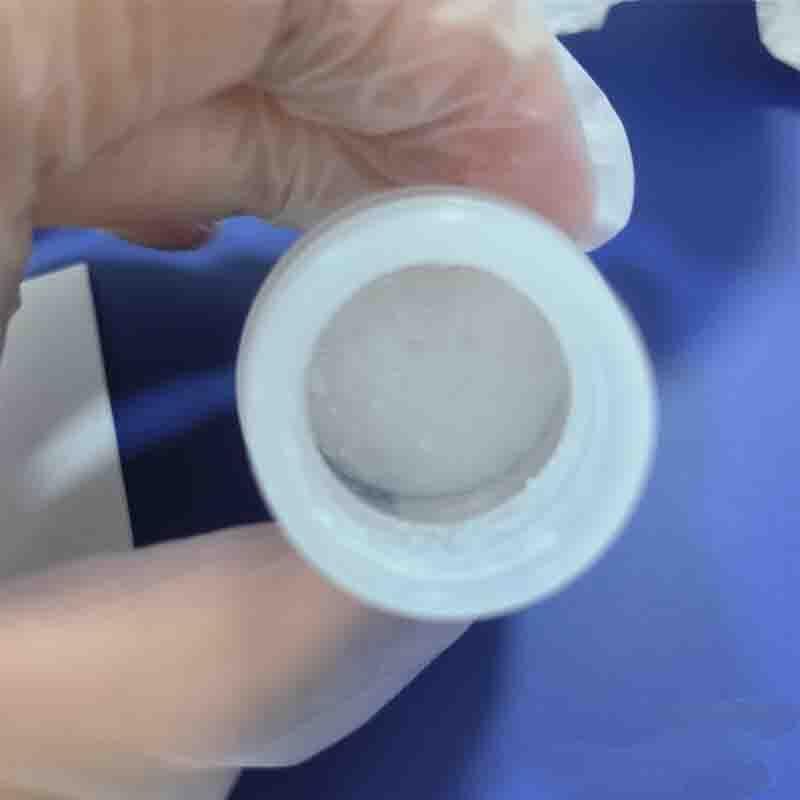-
Categories
-
Pharmaceutical Intermediates
-
Active Pharmaceutical Ingredients
-
Food Additives
- Industrial Coatings
- Agrochemicals
- Dyes and Pigments
- Surfactant
- Flavors and Fragrances
- Chemical Reagents
- Catalyst and Auxiliary
- Natural Products
- Inorganic Chemistry
-
Organic Chemistry
-
Biochemical Engineering
- Analytical Chemistry
-
Cosmetic Ingredient
- Water Treatment Chemical
-
Pharmaceutical Intermediates
Promotion
ECHEMI Mall
Wholesale
Weekly Price
Exhibition
News
-
Trade Service
*For medical professionals to read and refer to Prof.
Wang Fenghua's interpretation of the 2022 edition of CSCO Guidelines for Diagnosis and Treatment of Gastric Cancer for Advanced Metastatic Gastric Cancer The 2022 Chinese Society of Clinical Oncology (CSCO) Guidelines Conference will be held in the cloud on April 23-24
.
In the special session of gastrointestinal tumors on the afternoon of the 23rd, Professor Wang Fenghua of Sun Yat-sen University Cancer Prevention and Treatment Center interpreted the updated part of the 2022 edition of the CSCO Guidelines for the Diagnosis and Treatment of Gastric Cancer in the Advanced Stage of Metastatic Gastric Cancer
.
In the 2022 version of the CSCO guidelines, the general principles of medical treatment for advanced metastatic gastric cancer emphasize that for patients with no chance of radical surgery or metastatic gastric cancer, it is currently recognized that a comprehensive treatment based on systemic antitumor drug therapy should be adopted
.
The main points of this guideline update are mainly interpreted from the three main points of immunotherapy, anti-angiogenic therapy and anti-HER2 therapy for advanced metastatic gastric cancer
.
Update on first-line treatment of immunotherapy 1.
For HER2-negative PD-L1 combined positive score (CPS) ≥ 5, XELOX combined with sintilimab is recommended for first-line treatment, class IA evidence and level I recommendation
.
This update is based on the ORIENT-16 Phase III clinical study, which showed median overall survival (mOS) of 18.
4 vs.
12.
9 months and 15.
2 vs.
12.
3 months in CPS ≥ 5 and all randomized populations, respectively; median none Progression survival (mPFS) was 7.
7 vs.
5.
8 months and 7.
1 vs.
5.
7 months; objective response rate (ORR) was 72.
8% vs.
59.
6% and 58.
2% vs.
48.
4%; duration of response (DOR) was 8.
6 vs.
5.
5 and 8.
4 vs.
5.
5
.
Update 2.
This update is based on the comparison of efficacy data for high PDL1 CPS expression and the whole population in KEYNOTE-062, CheckMate649, ATTRACTION-4, ORIENT-16, and the results of subgroup analysis with different PDL1 CPS scores.
; A meta-analysis of three studies including CheckMate649, KEYNOTE-062 and KEYNOTE-590 showed that in patients with low PD-L1 expression, immunocombination chemotherapy did not provide better survival
.
At the same time, the accessibility of clinical application of PD-L1 detection in China and the difficulty of detection promotion were considered
.
At the same time, the recommendation strength of different PDL1 CPS scores was drawn from the National Comprehensive Cancer Network (NCCN) gastric cancer guidelines (2022 V1 version)
.
In the note, the updated guideline shows that, combined with clinical practice in China, it is recommended to reduce the tumor burden, relieve symptoms as soon as possible, or follow-up second-line treatment if the patient has a large tumor burden and a good physical condition.
FOLFOX/XELOX in combination with nivolumab or XELOX in combination with sintilimab may also be considered when treatment options are limited and patients have no contraindications to immune checkpoint inhibitors
.
Update 3.
New recommendations for first-line immunotherapy for HER2-positive (IHC3+ or 2+ and FISH+) gastric cancer patients are added, and the pembrolizumab + trastuzumab + XELOX/PF regimen is class IB evidence and class III recommendation
.
This update is based on results from an interim analysis of the KEYNOTE-811 study, which was granted accelerated approval by the FDA in May 2021 for the first-line treatment of patients with unresectable or metastatic HER2-positive gastric or gastroesophageal junction adenocarcinoma
.
The study, approved only in the US, had an ORR of 74%, lower than the 91% ORR previously reported in ISR trials
.
Update 4.
New recommendations for first-line immunotherapy for people with mismatch repair protein deficiency (dMMR)
.
Pembrolizumab is a class II recommendation (category 2B); nivolumab combined with ipilimumab (category 2B), nivolumab combined with FOLFOX/XELOX (category 2B), pembrolizumab Anti-combination PF regimen (category 2B) and other immune checkpoint inhibitors (category 3) are grade III recommendations
.
This update is based on a separate classification of the dMMR/microsatellite highly unstable (MSI-H) gastric cancer population from the pMMR population based on differences in clinical characteristics, chemo- and immunotherapy susceptibility, and prognosis.
, FDA approved pembrolizumab for non-colorectal, MSI-H/dMMR tumors based on 5 studies (KEYNOTE-012, 028, 016, 158 and 164); MSI-H subgroup of KEYNOTE-062 first-line therapy study , pembrolizumab±chemotherapy were superior to chemotherapy; in the MSI-H subgroup of the CheckMate649 first-line treatment study, nivolumab + ipilimumab and chemotherapy + nivolumab were superior to chemotherapy alone, clinical Practice with caution
.
Update 5.
Added second-line immunotherapy recommendation for dMMR population
.
For the dMMR/MSI-H population (regardless of HER2 status) who have not received PD-1/PD-L1 mAb before, nvolizumab treatment is recommended, class 2A evidence, level I recommendation; pembrolizumab treatment, Class 2B evidence, class II recommendation; for PD-1/PD-L1 monoclonal antibody previously used, the second-line treatment is selected according to HER2 status, class 3 evidence, class III recommendation
.
This update is based on the results of the multi-center, single-arm KEYNOTE-035-CN-006 phase II study in China.
The ORR was 44.
4% and the OS rate was 83.
3% in the advanced gastric cancer group.
Envolizumab was approved by the National Drug Administration of China on November 25, 2021.
The Regulatory Authority (NMPA) approved the dMMR/MSI-H indication
.
Another piece of evidence is the results of a multi-center single-arm phase II study in China, with ORR of 38.
2%, 12-month DOR rate of 92.
1%, and 12-month OS rate of 74.
5%.
Slulimumab was approved by NMPA for dMMR/MSI- H indication
.
In addition, the guidelines also added a note that after receiving slulimumab, the median follow-up time of 3 gastric cancer subjects who had received second-line therapy was 7.
16 months, and the ORR of 1 subject was 33.
3%, the median DOR is 4.
17 months
.
However, due to the limited sample size, more clinical data need to be accumulated in patients with MSI-H gastric cancer who fail standard therapy and receive slulimumab treatment
.
Update 6.
The recommendation for the third-line PD-1/PD-L1 monoclonal antibody treatment option for advanced gastric cancer emphasizes “no previous PD-1/PD-L1 monoclonal antibody treatment”, deletes the recommendation of pembrolizumab from the table, and adds CLDN18 in the form of annotation .
2 CAR-T research data, encourage participation in clinical research
.
Update 7.
Third-line immunotherapy adds CLDN18.
2 CAR-T cell immunotherapy in annotated form
.
This update is based on findings from the CT041 study
.
In CLDN18.
2 positive gastric cancer patients treated with CAR-T cell therapy, the ORR was 57.
1%.
Among 18 gastric cancer patients who had failed previous second-line therapy, the ORR was as high as 61.
1%, and the mPFS and mOS were 5.
4 months and 9.
5 months, respectively
.
Targeted therapy update update 1.
HER2-positive and HER2-negative gastric cancer increases anti-angiogenic therapy This update is based on the positive results of the REGARD study and the RAINBOW study in Western countries and after ramucirumab was approved by the FDA as a second-line treatment for advanced gastric cancer in 2014; The results of the RAINBOW-Asia bridging study based on the Chinese population were announced at the 2021 CSCO meeting.
On the basis of paclitaxel, the combination of ramucirumab has a significant PFS benefit, and the OS benefit is consistent with the global population.
Mosimumab was approved by the NPMA as a second-line treatment for advanced gastric cancer
.
Update 2.
Anti-HER2 therapy adds ADCs to select HER2-positive (IHC3+ or 2+) gastric cancer, and vellicitumab is recommended, class 2A evidence, level II recommendation
.
This update is based on the results of the RC48-C008 study with an ORR of 41.
7%, disease control rate (DCR) of 24.
4%, mPFS of 4.
1 months, and mOS of 7.
6 months
.
In addition, the results of the DESTINY-Gastric01 study showed the excellent efficacy of the ADC drug T-DXd in the HER2-positive gastric cancer population, with an ORR of 51.
3%, an OS of 12.
5 months, and a PFS of 5.
6 months, but it has not yet been marketed in China
.
To sum up, the update of the gastric cancer guidelines for the drug treatment of metastatic gastric cancer is based on the gastric cancer guidelines in 2021, and integrates the latest clinical research progress at home and abroad.
Indications,
etc.
In terms of molecular targeted drug therapy, anti-HER2 ADC drugs have rewritten the definition of HER2-positive population and a new treatment pattern from the perspective of treatment layout and population selection; first-line treatment of advanced gastric cancer has fully entered the era of combined immunotherapy, and treatment is constantly being optimized, but it also faces thinking and challenges
.
Expert Profile Professor Wang Fenghua Member of the Standing Committee and Secretary of the Gastric Cancer Professional Committee of the Chinese Clinical Oncology Association; member of the Pancreatic Cancer Professional Committee of the Chinese Clinical Oncology Association Member of the Standing Committee of the Cancer Targeted Therapy Professional Committee of the Chinese Anti-Cancer Association and Chairman of the Youth Committee of the Chinese Anti-Cancer Association Chairman; Member of the Professional Committee of Cancer Clinical Chemotherapy of China Anti-Cancer Association; Member of Internal Medicine Group of the Professional Committee of Gastric Cancer of China Anti-Cancer Association; Chairman-designate of the Professional Committee of Tumor Targeted Therapy of Guangdong Anti-Cancer Association; Pancreatic Cancer Professional Committee of Guangdong Anti-Cancer Association It's time for the vice-chairman's guide to answer questions! Do you have any confusion about diagnosis and treatment in clinical work? What did you think about when using the guidelines to develop a plan? Hurry up to participate in the event and have a face-to-face exchange with the CSCO guide interpreter! ! ! Event time: 4.
21-4.
28 Participation method: Scan the QR code below or read the original text and click "Download Now" below.
Follow the tumor channel and follow the CSCO guideline column to find the corresponding discussion section article, and leave a message to ask questions!







